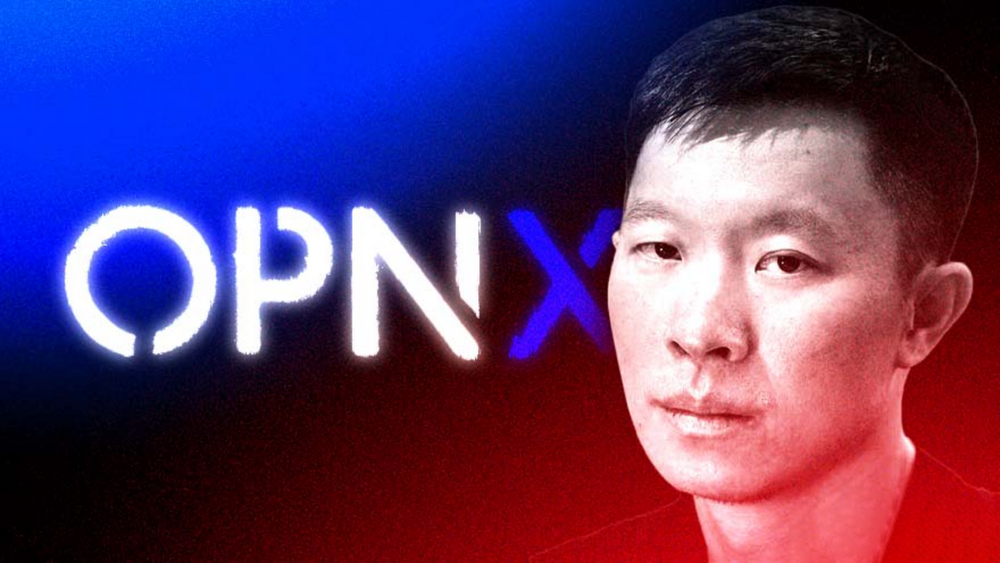World Bank Organization: Blockchain – a new trust machine?
Editor's Note: This article was translated from IFC's first quarter report. Part1 Darling Observatory|IFC Report Part1: Blockchain Opportunities for Private Enterprises in Emerging Markets (click to read), this article is Part2, a report from international banking organizations, the content is more exciting. Enjoy:
Blockchain technology is an exciting new technology that can have far-reaching effects, just like the steam engine and the Internet that brought the industrial revolution, with the power to undermine existing economies and business models.
It can bring productivity improvements to multiple industries, whether in the economic sector or in the public domain of energy, supply chain, intellectual property management, virtual economy, etc., or a larger change.
Blockchain technology has the ability to de-intermediate, improve transparency, and build trust, which can significantly reduce interaction costs, improve the efficiency of existing value chains, improve tax models, and open new markets.
- Perspectives | Paradigm shift: How can the Eth2.0's fragmentation chain serve the contract on Eth1.0?
- Buying a bank with bitcoin is such a fear
- Bitcoin white paper copyright is registered, the real trouble has just begun
Especially in emerging markets, the blockchain will play a significant value. Blockchain technology is still in its early stages, and before it is widely popularized, it will inevitably face many technical and regulatory challenges and risks. Questions about stability, operability, security, interaction costs, data privacy, and regulation have been constant. Business leaders and policy makers need to take a long time to think about the blockchain when it is necessary.
The blockchain has generated great interest in the past three years. Believers call it the backbone of the fourth industrial revolution, while skeptics consider it to be an over-hyped combination of existing technologies.
So what is a blockchain?
Disputes over the definition, structure, performance, and application of blockchain technology exist in the public, corporate, and government sectors. The term "blockchain" is often used in conjunction with "distributed ledger technology," and when it comes to "blockchain," everyone thinks of the first incarnation of the blockchain "bitcoin."
Although the blockchain has existed since 2009, people realize that it has new value and generates new interest in the last two years. The new value of this blockchain refers to: beyond the digital currency, inter-organizational cooperation and value transfer.
Since the blockchain enables digital proof of identity and cost-free verification, the blockchain has a very broad application, including not limited to the financial industry. This includes peer-to-peer technology, energy markets, supply chain certification and intellectual property management.
I. Overview of distributed ledger technology
(1) Evolution of the books: from concentration to dispersion
The blockchain introduces a database that functions like a distributed network, so there is a “distributed ledger” that solves the problem of cooperation between members of a complex network without the need for trust costs, and In the case of centralized institutions and intermediaries, the transfer of value is carried out.
Blockchains are often referred to as "breakthrough innovations" or general-purpose technologies (GPTs) and are no different from steam engines or electric motors. In other words, the ability to create “subsequent innovation and productivity improvements across multiple industries” is similar to the previous Internet.
The main value of the blockchain is its ability to deploy encryption mechanisms to reach consensus among the parties to the books. This eliminates the need for central agencies or intermediaries, creating a distributed trust system for value transfer. There is no single institution or entity that can modify past data entries or approve new additions to the ledger (Figure 1). Decentralization can increase speed, reduce delivery costs, and enhance security in the network.
Image source: IFC-EMCompass-Blockchain-Report, 2019; Daling Data
The blockchain was originally in the form of bitcoin. Bitcoin is a peer-to-peer electronic cash system launched by Satoshi Nakamoto in 2009. This peer-to-peer electronic payment network, from the outset, is "based on the trust of encryption certification algorithms, allowing any willing partner to pass value directly and freely without the need for any trusted third party."
Cryptography is a cryptographic process that achieves consensus through work proofs. Its role in blockchain technology is to eliminate the need for trusted intermediaries in economic activities. At the beginning of Bitcoin, there was a strong anti-modern economic system consciousness, supported by a community of liberal economics, technical liberals and password punks, seeking to establish a non-government-controlled currency.
Bitcoin's transaction anonymity also made it a means of payment for illegal activities such as drug trafficking during its development, and brought a bad reputation among the government and the public. In addition to this bad influence, the development of Bitcoin has continued. As of the release of this report, the market value of Bitcoin is $42 billion, and millions of people worldwide use Bitcoin to pay, including the emerging remittance market.
From the very beginning, Ethereum was designed not only as a payment system, but also as a computer development platform for the open source, public, and blockchain infrastructure. This open source development platform is positioned as a secure development platform that provides cryptographic economics for a variety of decentralized applications. Given its extension development technology for early bitcoin technology, it is often referred to as Blockchain 2.0.
Ethereum uses "ether" as the Gas fee to subsidize the miners to participate in the account book calculation of the node. Smart contracts can be used on Ethereum, or "deterministic trading mechanisms that can be directly executed between nodes of non-trust relationships." The Ethereum market value exceeded $26 billion in July 2017. It is particularly noteworthy that in January 2017 Ethereum's global market capitalization was less than $1 billion.
Translation: Daxie Think Tank
(To be continued)
This report was first printed in October 2017 and reprinted in January 2019. The author is briefed as follows:
Douglas Miller, Marketing Development & Regulatory Manager, Energy Network Fund;
Peter Mockel, IFC's Chief Economic Development and Climate Strategy Specialist;
Gordon Myers, Principal Consultant, IPFC Legal, Technology and Private Equity; Co-Chair, Legal and Policy Community, ITS Innovation Lab, World Bank;
Marina Niforos, founder of Logos Global Advisors. Logos Global Adivisors provides consulting services for high-growth start-ups and large multinational companies.
and many more.
We will continue to update Blocking; if you have any questions or suggestions, please contact us!
Was this article helpful?
93 out of 132 found this helpful
Related articles
- Head of the World Economic Forum Blockchain: Blockchain technology can solve the crisis of trust
- What happened to Babbitt’s short EOS conference? EOSIO2.0+YubiKey+Voice
- Issuing USDT on the Liquid sidechain and accessing the lightning network is probably the coolest thing Tether has ever done.
- Looking at BI JUNE from the official press release, what did you read?
- Wang Yongli, former deputy governor of the Bank of China: BTC completely violated the logic of currency development
- Did this EOS release disappoint you?
- The volatility product "Turtle Bunny Card" is available, is the coin derivative a devil or an angel?






